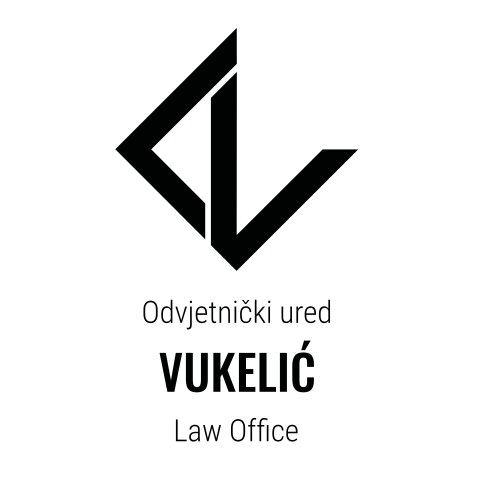Best Job Discrimination Lawyers in Croatia
Share your needs with us, get contacted by law firms.
Free. Takes 2 min.
Or refine your search by selecting a city:
List of the best lawyers in Croatia
About Job Discrimination Law in Croatia
Job discrimination in Croatia is primarily addressed by the Croatian Constitution, the Labor Act, and the Anti-Discrimination Act. These laws collectively aim to prevent discrimination in the workplace based on various protected characteristics such as gender, age, race, ethnicity, disability, sexual orientation, religion, and more. The goal is to ensure that all employees have equal opportunities and are treated fairly regardless of their personal attributes or beliefs.
Why You May Need a Lawyer
There are several common situations where seeking legal help for job discrimination is advisable:
- Unfair treatment in hiring, promotion, or termination based on personal characteristics.
- Facing harassment or a hostile work environment related to discrimination.
- Experiencing unequal pay or terms of employment linked to bias.
- Needing guidance on filing a formal complaint with the appropriate authorities or internally within a company.
- Defending against retaliatory actions taken by an employer following a discrimination complaint.
Legal expertise can help navigate these complex issues and ensure one's rights are effectively protected.
Local Laws Overview
In Croatia, key legislative frameworks that are particularly relevant to job discrimination include:
- The Labor Act: Sets the fundamental rights and obligations of employers and employees, emphasizing the principle of non-discrimination.
- The Anti-Discrimination Act: Provides specific measures and remedies to tackle discrimination, outlining procedures for addressing complaints and enforcing equality.
- The Croatian Constitution: Upholds the principle of equality and prohibits discrimination through its guarantee of fundamental human rights.
These laws work together to safeguard employees from discrimination, ensuring fair treatment and equal opportunities in the workplace.
Frequently Asked Questions
What constitutes job discrimination in Croatia?
Discrimination can occur when an employee or job applicant is treated less favorably due to characteristics like race, gender, age, ethnicity, disability, or sexual orientation.
How do I know if I'm experiencing job discrimination?
Indicators of job discrimination include biased treatment in employment decisions, unequal pay, or being subjected to unwanted conduct that creates an intimidating work environment.
Can I file a discrimination complaint if I'm a foreign worker?
Yes, foreign workers in Croatia have the same protections under the Anti-Discrimination Act and can file complaints if they encounter workplace discrimination.
What should I do if I face discrimination at work?
Document incidents, report them to your employer or HR department, and contact a lawyer specialized in employment law to explore your legal options.
Is there a time limit for filing a discrimination claim?
Yes, usually a claim should be filed within three years from the occurrence of the discriminatory act or from when it became known, but it's advisable to act sooner.
Can I be fired for reporting discrimination?
Retaliation against an employee for reporting discrimination is illegal under Croatian law. If this happens, you should seek legal assistance immediately.
Are there specific agencies that handle job discrimination cases?
Yes, the Ombudsperson's Office and Labor Inspectorate can provide guidance and investigate claims of discrimination.
What remedies are available if my claim is successful?
Potential remedies include compensation for damages, changes in workplace policies, or reinstatement to a job position if relevant.
Can negotiations or mediation resolve discrimination disputes?
Yes, alternative dispute resolutions like mediation can be effective, offering a way to settle disputes without proceeding to court.
How can a lawyer assist me in a discrimination case?
A lawyer can provide expert advice, help gather evidence, represent you in negotiations or court, and guide you through the whole legal process.
Additional Resources
Here are some useful resources and organizations that can assist:
- Ombudsperson's Office: Provides assistance and information on anti-discrimination issues.
- Labor Inspectorate: Enforces labor laws and helps with issues related to workplace discrimination.
- Local NGOs and advocacy groups: Offer support, advice, and sometimes legal assistance for discrimination victims.
- Equality Advisory Services: Can provide advice and resources about your rights and legal options.
Next Steps
If you believe you are facing job discrimination and need legal assistance, consider the following steps:
1. Document everything: Collect evidence related to the discrimination, including emails, witness statements, and any relevant documents.
2. Report the issue: Use your company's internal procedures if they exist, or contact relevant governmental bodies.
3. Consult a lawyer: Reach out to a legal professional who specializes in employment law to get advice tailored to your situation.
4. Explore your options: Your lawyer can help you understand the various legal routes available, such as negotiation, mediation, or litigation.
Remember, the key is to act promptly to ensure your rights are protected and to take advantage of any legal opportunities available to address and resolve the discrimination.
Lawzana helps you find the best lawyers and law firms in Croatia through a curated and pre-screened list of qualified legal professionals. Our platform offers rankings and detailed profiles of attorneys and law firms, allowing you to compare based on practice areas, including Job Discrimination, experience, and client feedback.
Each profile includes a description of the firm's areas of practice, client reviews, team members and partners, year of establishment, spoken languages, office locations, contact information, social media presence, and any published articles or resources. Most firms on our platform speak English and are experienced in both local and international legal matters.
Get a quote from top-rated law firms in Croatia — quickly, securely, and without unnecessary hassle.
Disclaimer:
The information provided on this page is for general informational purposes only and does not constitute legal advice. While we strive to ensure the accuracy and relevance of the content, legal information may change over time, and interpretations of the law can vary. You should always consult with a qualified legal professional for advice specific to your situation.
We disclaim all liability for actions taken or not taken based on the content of this page. If you believe any information is incorrect or outdated, please contact us, and we will review and update it where appropriate.
Browse job discrimination law firms by city in Croatia
Refine your search by selecting a city.

















